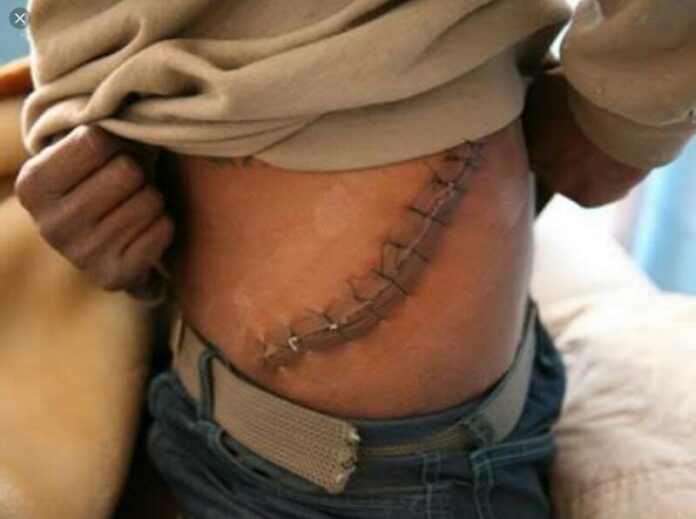OPINION BY:
BRIAN MUKALAZI
bmukalazi@ecmafrica.org
THE Sunday Vision newspaper of April 10 published a story of a young man from western Uganda who, in 2013, was lured into donating one of his kidneys to his ailing employer in return for hefty rewards in form of land, and other property.
The donation was successfully done in India but sadly for him, none of the promises previously made was fulfilled. And today, 8 years later, he reportedly lives in constant pain and spends about Ushs1.5 million per month on dialysis at Kiruddu Hospital. His only hope for justice now lies in the judicial system.
This young man’s story is more common than statistics suggest. Driven by similar lucrative offers, hundreds of desperate Ugandans are reluctantly consenting to giving away their body organs, especially kidneys, all in anticipation of better livelihoods for themselves and their families.
And there are also other harrowing tales of thousands of people tricked or drugged and their organs harvested without their knowledge. People are often coerced to give up their organs, in order to be illegally sold on the black market.
The World Health Organisation estimates that the illegal organ trade is worth over $1 billion each year and kidneys are the most trafficked organ globally. It is estimated that approximately 7,000 kidneys are harvested and trafficked annually, with Africa accounting for a significant portion of this.
Kidney selling is no longer a strange or exotic act. It is now normal, entrenched and is regarded as an alternative source of income generation.
The commonest scenario is of vulnerable individuals easily recruited and convinced to participate in the trade. The pressures are subtle; the coercion hidden. This is mainly due to the widespread poverty levels and limited job opportunities which are forcing many Ugandans to give up their organs in exchange for ‘quick’ cash.
It is said that an organ buyer spends on average $150,000 for vital organs like kidney, liver or heart. For a kidney, a willing donor will usually get between $5,000 and $20,000 with the middlemen equally getting their share. But in many instances, the victims are duped and end up without any long-term financial gains.

The author: Mr. Brian Mukalazi
Of course, many Ugandans remain convinced that selling a kidney is a safe and easy way to raise cash. They argue that the medical procedure is an easy one and that somebody can always live a normal life with one kidney.
However, after surgery, many of these kidney sellers suffer an alarming rate of post-operative complications and mortalities resulting from mismatched organs, infections such as HIV and Hepatitis C, and are immobilized with pain, and unable to eat, urinate or defecate.
Also, kidney sellers are often the breadwinner of their family, but the impact of selling a kidney on their physical and mental health frequently disables them from future work. They suffer social stigma and tend to regret their decision to sell.
But this gets me thinking: How can we discourage our young people from participating in this inhumane trade when the youth unemployment in Uganda currently stands at over 70 percent; when the youth who are institutionally qualified are unable to find jobs and those that do, are employed in low productivity ventures?
In the recent years, the government has been advocating for a shift to entrepreneurship as an alternative way of job creation but this hasn’t also been very successful. Today, while the majority of Ugandans are self-employed in the informal sector, no meaningful employment opportunities have been created.
They are facing particular constraints that prevent them from achieving high levels of productivity, including limited access to capital, limited support and recognition by government, and limited access to workspaces and other facilities. So, at the end of the day, people are forced to live from hand to mouth.
Most kidney donors are predictably poor, vulnerable, displaced and dispossessed. Many are peasants, ex-prisoners, mental patients or stranded refugees. Some are underage teens who are counselled by brokers to fabricate names and add a few years to their age to make them ‘acceptable’ to the surgeons.
Most enter willingly into these ‘transactions’ in which they agree to the terms, which are often verbal, but only realize later how they have been deceived, defrauded or cheated. They do not understand the seriousness of the surgery or what they are likely to face with respect to the discomfort or immediate inability to resume their normal lives.
Some brokers use under-hand tactics to lure their victims into selling the kidneys. They offer opportunities of working abroad to unemployed youth, household heads in debt or in need of cash to support sick spouses or children.
Unquestionably, the existence of excessive human capital without subsequent employment opportunities has been a key catalyst for the high incidences of kidney harvesting among Ugandans. Similar challenges have also been experienced in countries such as Egypt and Libya, especially among impoverished communities.
In Egypt, Refugees and migrant workers — primarily Sudanese, Eritreans and some Syrians — are usually barred from access to formal labour markets, which makes them more vulnerable to the trade. This forces them to give up their organs.
Therefore, government should develop and implement ethically and clinically sound programs for organ donations. And this should be similarly supported by robust programs aimed at curbing the extreme levels of poverty and unemployment in the country.
The author Mr. Mukalazi is the Country Director of
Every Child Ministries Uganda.
emal: bmukalazi@ecmafrica.org


